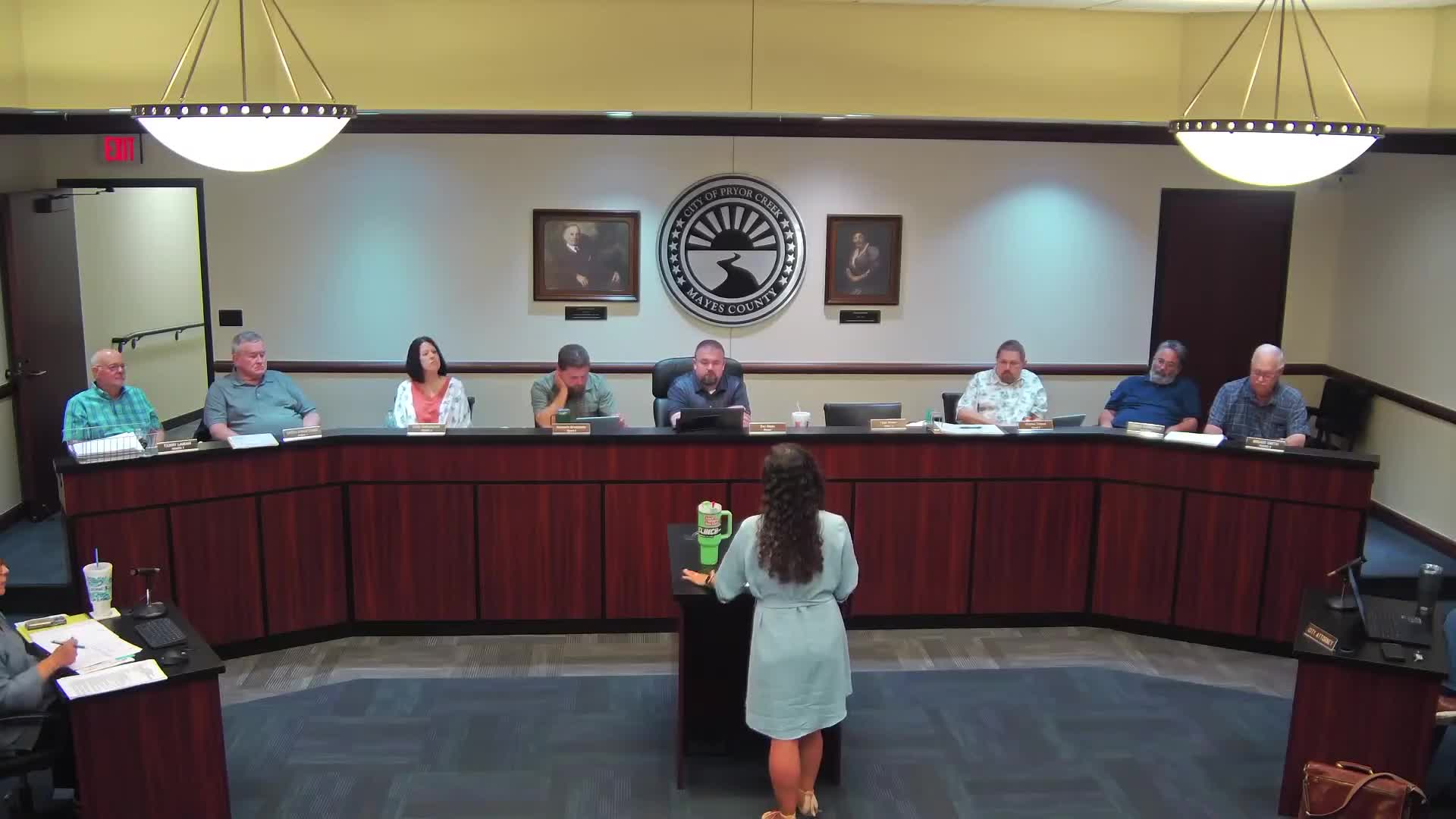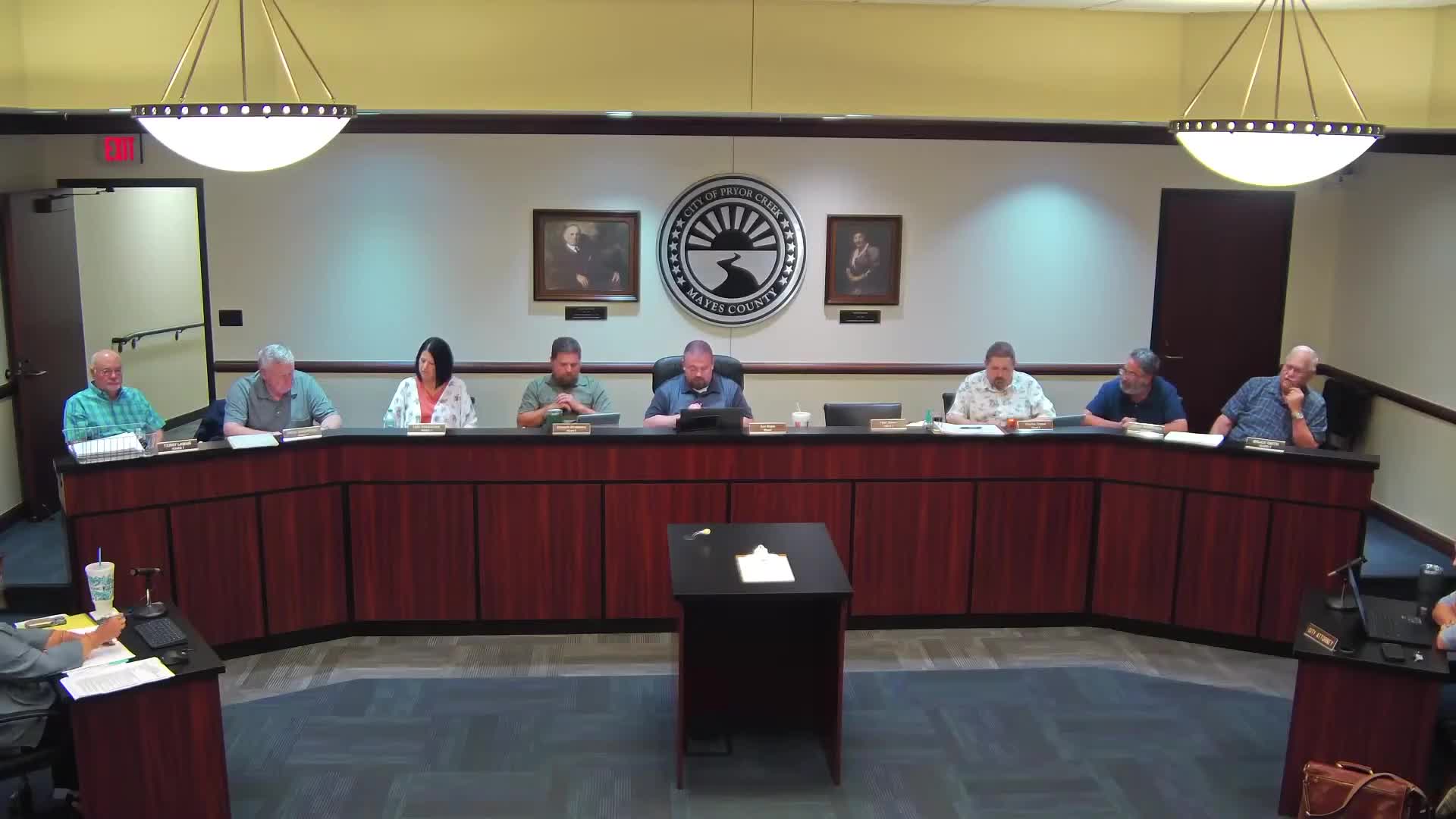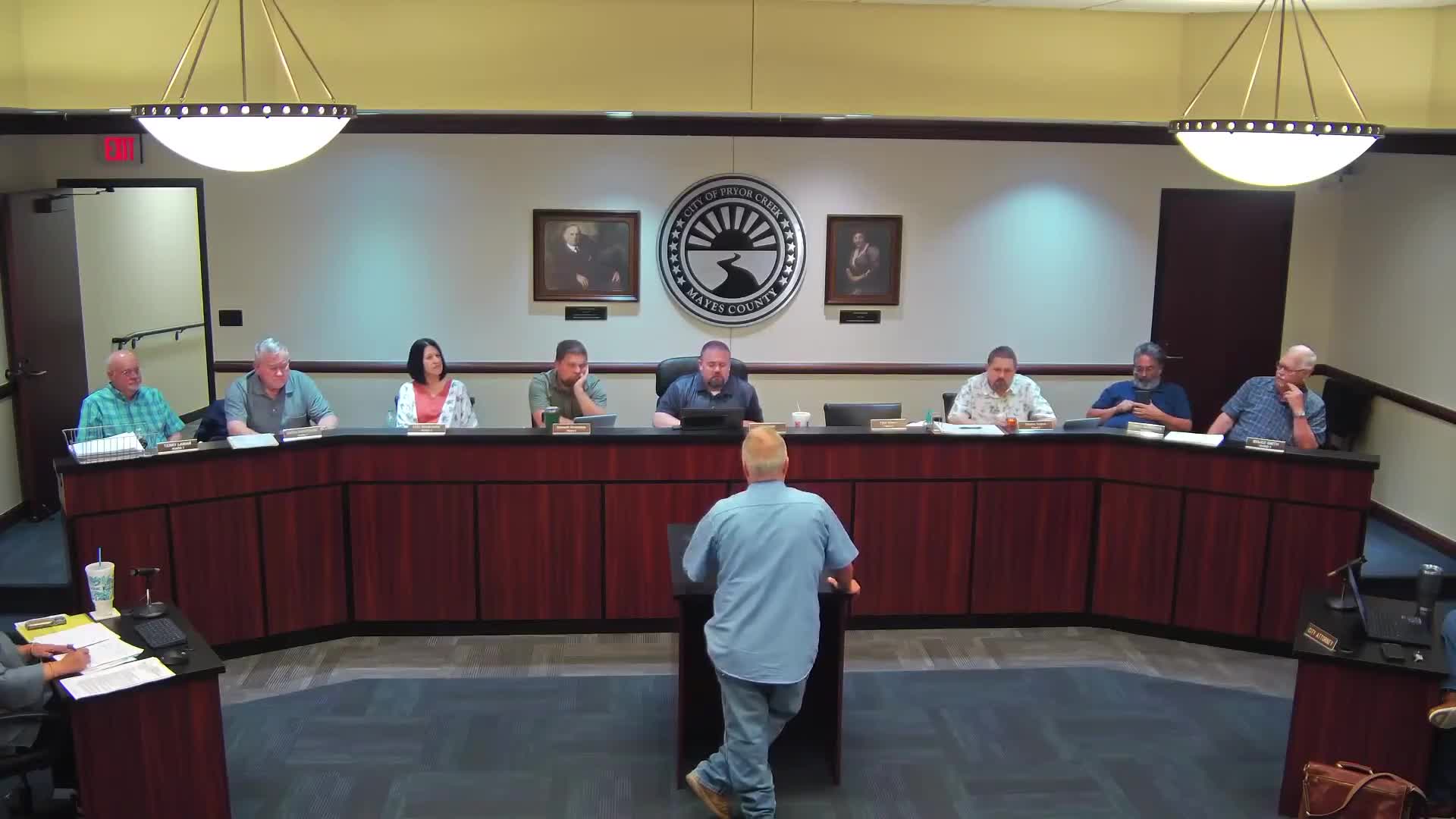Article not found
This article is no longer available. But don't worry—we've gathered other articles that discuss the same topic.

Votes at a glance: Pryor Creek council approves hotel‑motel allocations, several ordinances and authorizes a streetscape grant application

Pryor Creek council adopts Mayes County safety action plan to boost Safe Routes and trails

